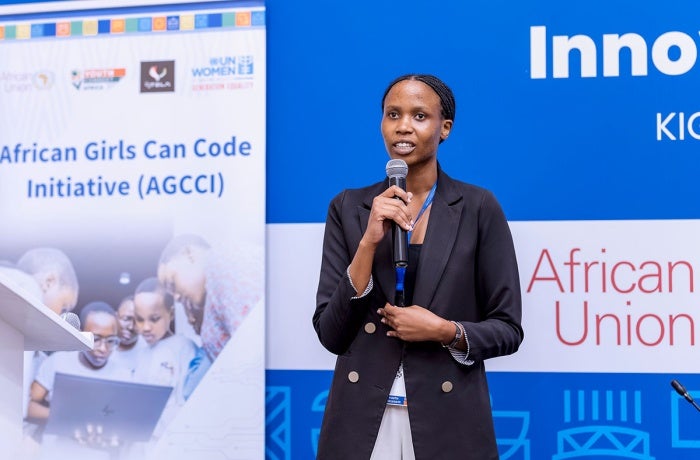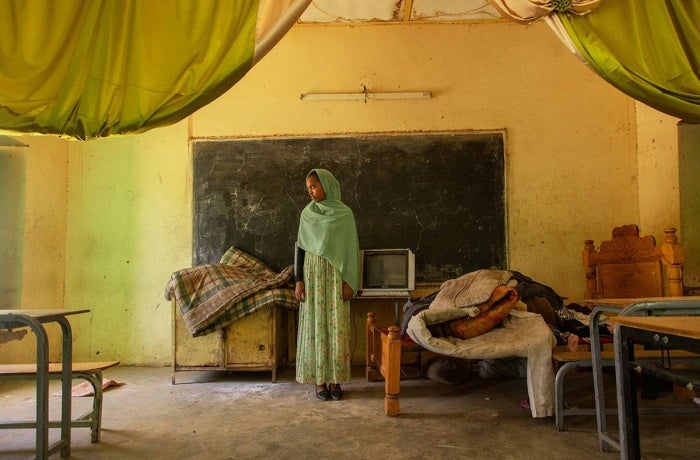Women vendors register businesses, and hope, in DRC
UN Women and a Congolese women’s civil society organization are helping women market vendors register their businesses, obtain key market support and access state services.
More than 99 per cent of businesses in the Democratic Republic of the Congo (DRC) are unregistered. For decades, women vendors have managed their stands informally, exposing themselves to notorious risks, ranging from adverse weather to high transportation costs, complications with the supply of raw materials and even violence when travelling to their stands in the early morning.
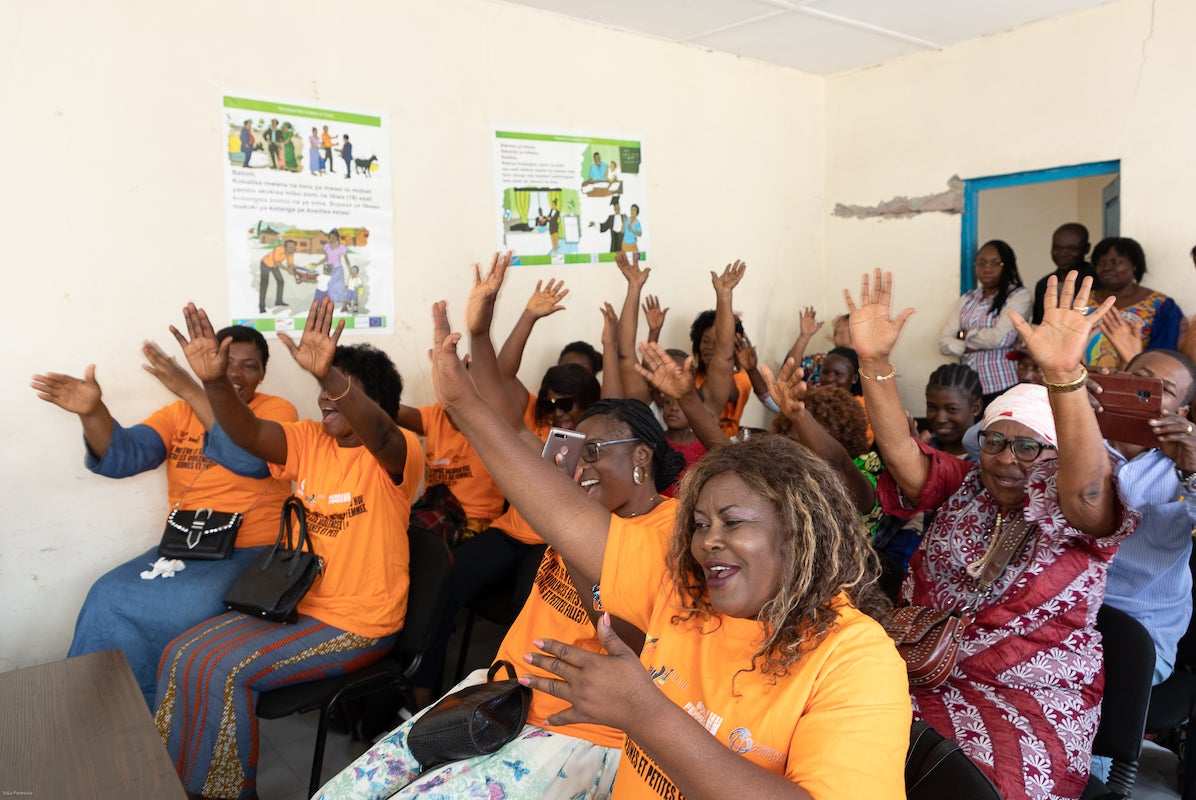
In the informal sector, where most women and other vulnerable populations operate, there is no social protection offered by official bodies. In a competitive business like market vending, where perishable goods must often be disposed of at the end of the workday, women rarely generate sufficient income to renew their stock. Vendors often end up having to buy merchandise on credit from fraudulent suppliers under unfavorable terms. Women entrepreneurs also face sociocultural barriers, violence and gendered stereotypes. Some experience rape, sexual violence, kidnapping, intimidation or theft, or are barred from engaging in commercial activity by their spouses or partners.
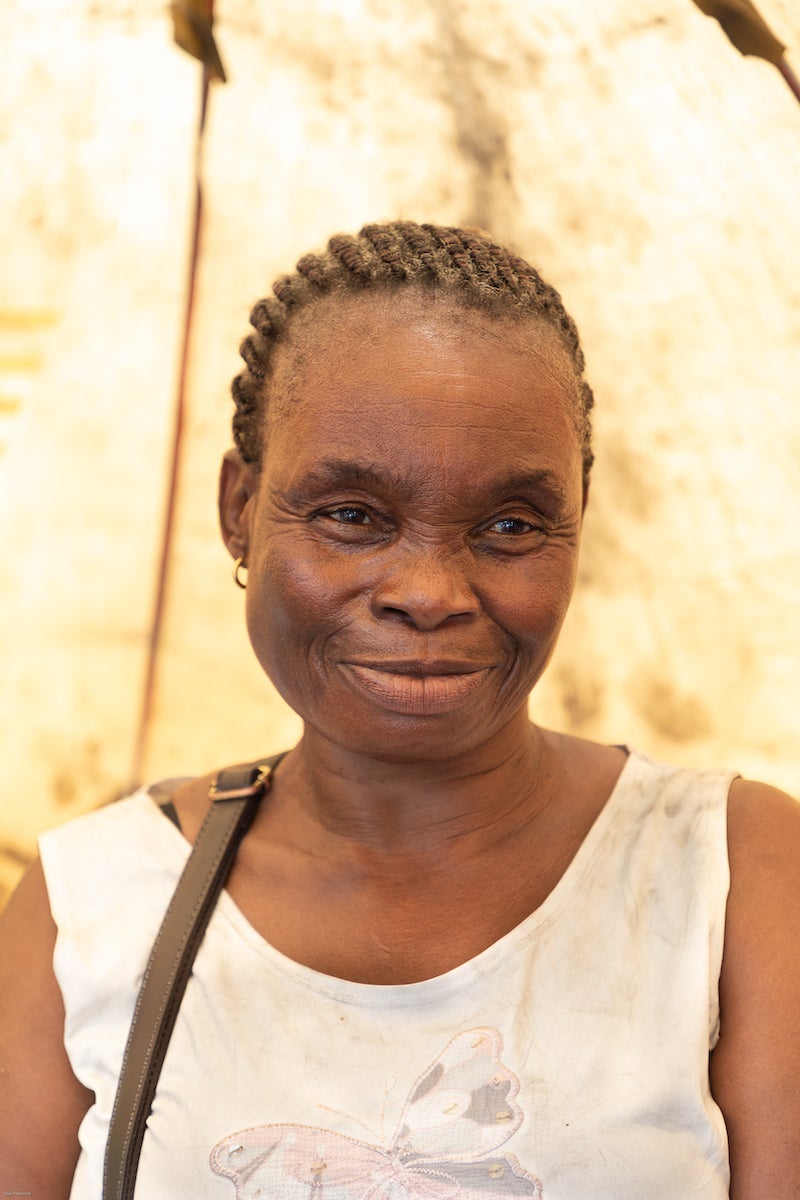
“My palm oil barrel costs me USD 30 dollars and it is sometimes very difficult to sell. It takes me from 3 days to one week to empty it,” says 60-year-old Suzanne Ilambe, who has been selling palm oil at the Mont Ngafula market in Kinshasa for the past 22 years. Like many, the mother of four says she became a market vendor to support her children’s future. Her business has allowed her to feed her family; yet she says a difficult economy, unstable currency and constant fear of attacks make her job an increasingly dangerous one.
But there is a new trend among vendors at the Mont Ngafula market to offset some of these risks: registering their micro-enterprises.
Through formal registration, and attending workshops on entrepreneurship, women are more likely to escape poverty and grow as entrepreneurs. Being legally registered enables them to access social security benefits, market information and protection from violence. It also gives them access to fair loans from banks, allowing them to grow their businesses legally and safely.
But becoming a business owner comes with challenges. Women often have few opportunities to access market information and are faced with registration delays, complicated administrative procedures, administrative fees and travel costs, all while simultaneously shouldering domestic tasks and family responsibilities. The burdensome process of obtaining official documents, such as a criminal record, tax identification number or even a national ID, make it near impossible for many to get registered.
To overcome such challenges, UN Women, in collaboration with the Congolese women’s civil society organization CAFCO (Cadre Permanent de Concertation de la Femme Congolaise), has been helping women entrepreneurs navigate the process to formalize their business through the “Support Project for the Development of Micro, Small and Medium-sized Enterprises” (PADMPME) of the Government of the DRC, financed by a loan from the World Bank’s International Development Association.
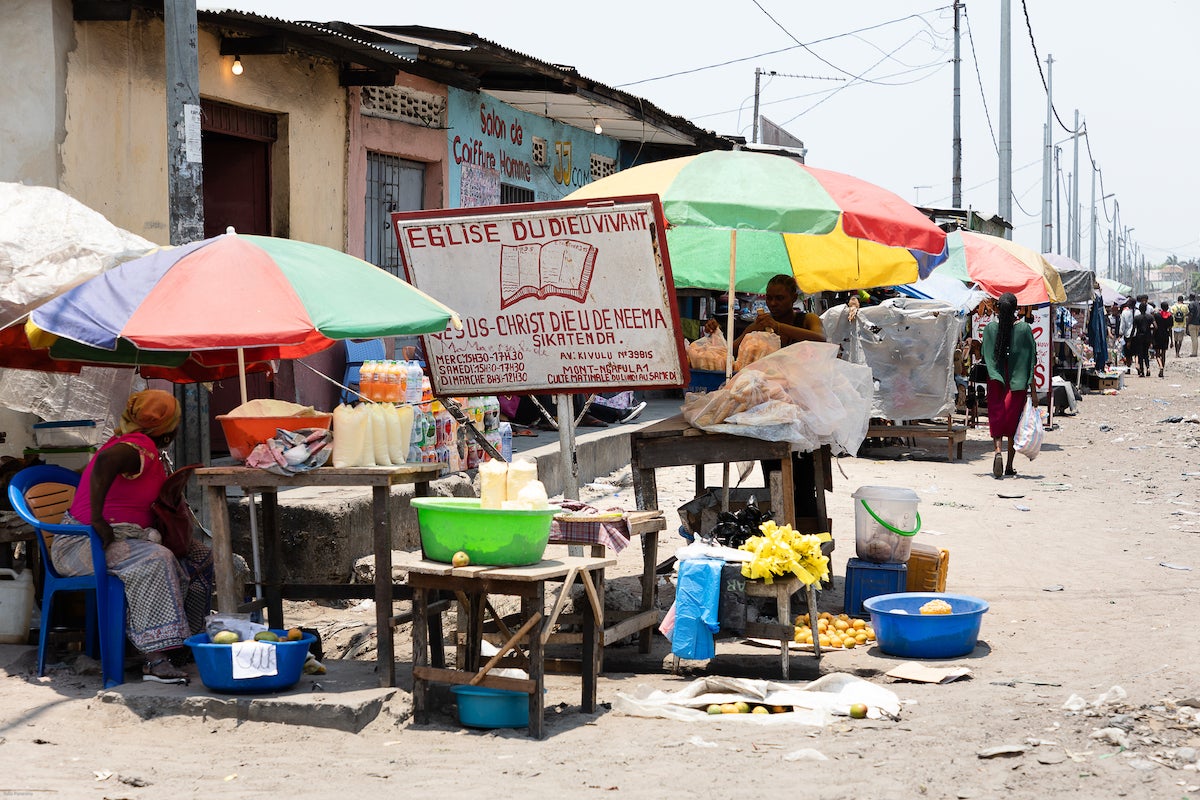
In October 2022, at the Mont Ngafula Town Hall in Kinshasa, 20 women vendors became the first cohort to obtain their official business registration documents.
“By registering as formalized enterprises, these businesses become traceable in statistics and integrate official channels, enabling them to access administrative and strategic information and benefit from the services offered by the State, its branches and his partners,” explains Rosnert Ludovic Alissoutin, PADMPME Programme Manager at UN Women DRC.
“In our country, until now, the work of women was not really taken into account in an official way and was not yet counted in the national economy,” adds Mimy Mopunga, PADMPME Project Leader at CAFCO.
Formalizing their businesses not only allows women to continue to grow as individuals but puts them in a position to help other women too.
Among the newly registered business owners are Malala Nzola, 38, a cassava and corn flour seller, who wants a warehouse to store her stock, and Catherine Nzola-Ntima, 50, who sells dried fish and dreams of creating employment for other women.
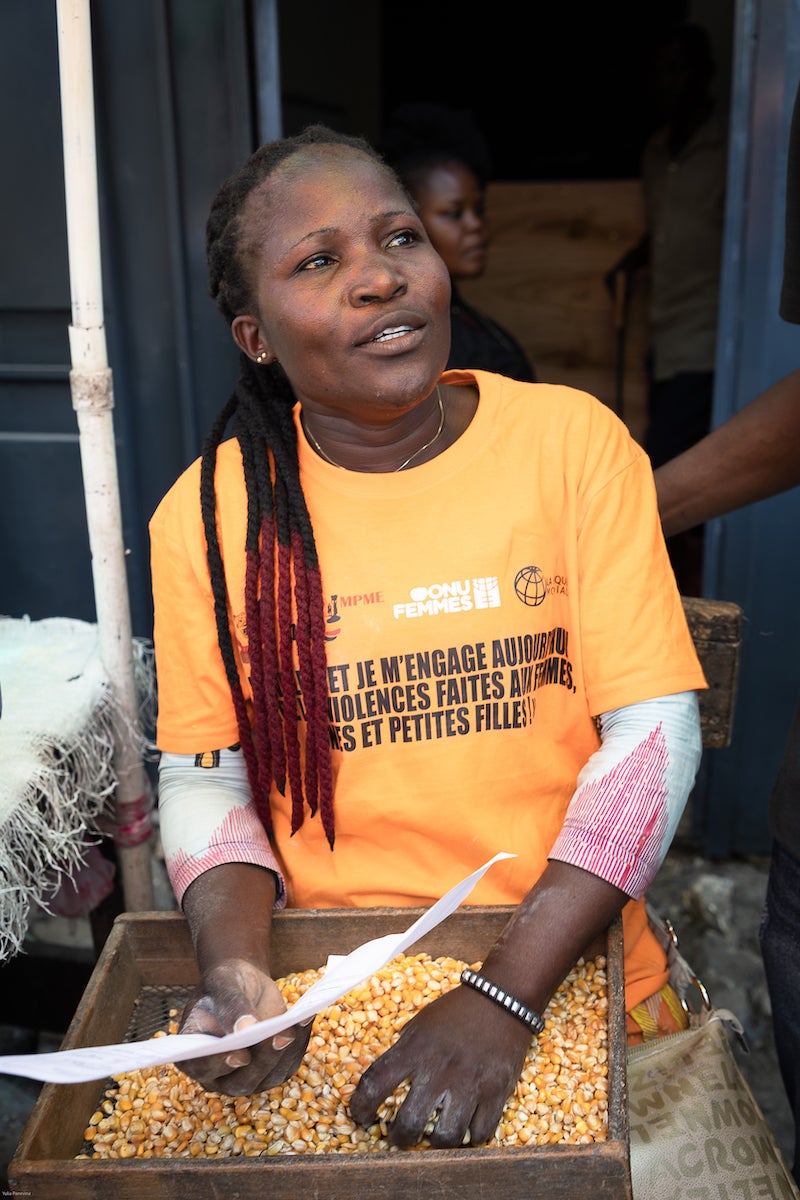
“Women deserve to have their future in their own hands, and UN Women will continue to provide them with the tools to do so. I am proud of UN Women, who encourages us and who continues to support women like me so that they can become independent,” says Nzola.
Mont Ngafula market authorities lead information sessions with their vendors, who then encourage their peers to formalize their shops through word-of-mouth.
“When the team of officers goes through the markets, there are many women who approach them to ask to register their business. We did not expect these results,” says Mopunga. “With this partnership, UN Women has really identified the problem of women entrepreneurs. It is a real success.”







